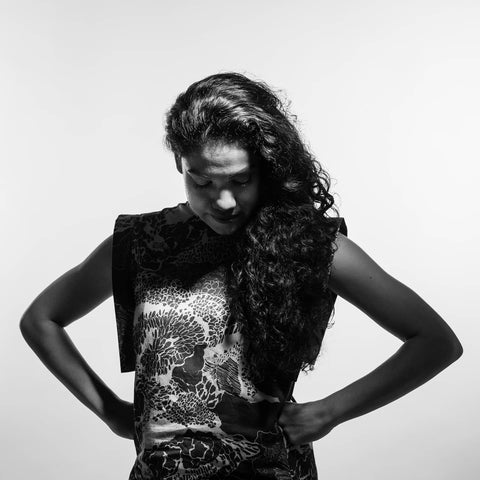Sharda Harrison is a Singapore-based performance artist who straddles different practices from theatre actress, acting coach, to a host for Channel News Asia's Talking Point.
Q. How did you get into acting and how has that role evolved?
A. Growing up, I actually wanted to become a conservationist because my dad is a zoologist and my mum is a horticulturalist. But by the time I hit 10 or 11, I was very shy and faced challenges dealing with my parents' divorce, my identity and insecurities. Being enrolled in drama school just changed my whole perception of life.
Acting was a healing experience to me - it was where I got to speak and dance and express the pain inside. I became more confident and at age 11, I just knew that I wanted to act and still somehow bring in the issue of environmental degradation into my works (although as an 11-year old, I still did not understand what that would be). Acting with a big passion for the environment.

I was trained by Act 3 Theatrics. I started out in Children's Theatre - bringing school shows at the back of trucks to shopping centers and hospitals, moving props, painting freckles on my face...my first mentor was Chandran, the director of Act 3 Theatrics, and he really fostered and nurtured my passion for acting. At 17, I enrolled for Lasalle College of the Arts and further studied and enhanced my acting practice.
At that time, I became close to another mentor, Elizabeth de Rosa, who believes in a theatre form which had both Asian and Western aspects. For example, we might do a play about Hamlet but the actors might be dressed in Kimonos, or the acting style might be Beijing Opera.
It was a real big world based on the late director William Teo's vision about the backyard of cultures available to us in Singapore. I just fell in love with that and it stopped me from seeking the idea that London or New York would be the highlight of my career. Which is why I trained with Elizabeth de Rosa, trained in kalaripayattu (a form of Indian martial arts), contact improvisation (a Western form of body weight dancing), Suzuki (a Japanese method of acting using the body)... researching and collecting different ways of moving with my body.


I expanded my craft into an actress who could move. Later on, I became a teacher and coach and thought about how I could teach non-performers or people who are not interested in professional acting but could empower themselves through these skills. I might get my clients to do breathing exercises like qi gong or yoga, and theatrical practices like stretching and voice works.
In 2013, my brother and I assembled a fringe theatre company called Pink Gajah ('elephant' in Malay). The white elephant looks at the unspoken issues in the room. But the pink elephant? It has a psychedelic touch to it.
Q. What inspires you?
A. I was once obsessed with Frida Kahlo to a point where I made a work about her called "Thinking about Death". I was looking at ants and realized an ant had picked up a dying ant and brought it back into a burrow. I asked my dad about it and learnt that ants bury their dead.
To me, Frida's works are about her-self, her desires, pain and joy, and turning personal narratives into her works since her body was impaled. Her relationship with Diego, his relationship with other women, her relationship with other women - that represented freedom and I think the main reason why she inspired me - growing up in Singapore - was because she's a rebel.
Right now, I'm not just passionate about theatre only. I'm looking at different mediums - telling peoples' stories through interviews, videos and social media. Social media is a stage for me and I want to push that further. I can have 200 people come to a live theatre show but I can also have 200 people and more visit my social media page.

Q. Tell us about a project you're currently working on.
A. A piece that was initially titled Rude Girl, which looks at the censorship of women and their bodies. Then my brother was going to do a work called Raksasa (which means 'monster' in Malay) that explores toxic masculinity. Both works need to come together to film the stories from both genders, and we plan to call it 'Rude Gender'.

Q. 3 essential items in your wardrobe?
A. This is a really hard question! I only really opened my eyes to fashion when I started hosting at CNA. Before that, I did not consider make up, did not consider my clothes. I would rock up to rehearsals in bohemian Bali pants and a little crop top, and wear whatever the stylist dressed me up in for the stage.
Now, learning from you, a black dress. One you can style up and down - wear it to an interview, a dinner, with heels or sneakers. In my line of work, a solid neutral color top that is versatile. And a pair of jeans.
Sharda wears:
